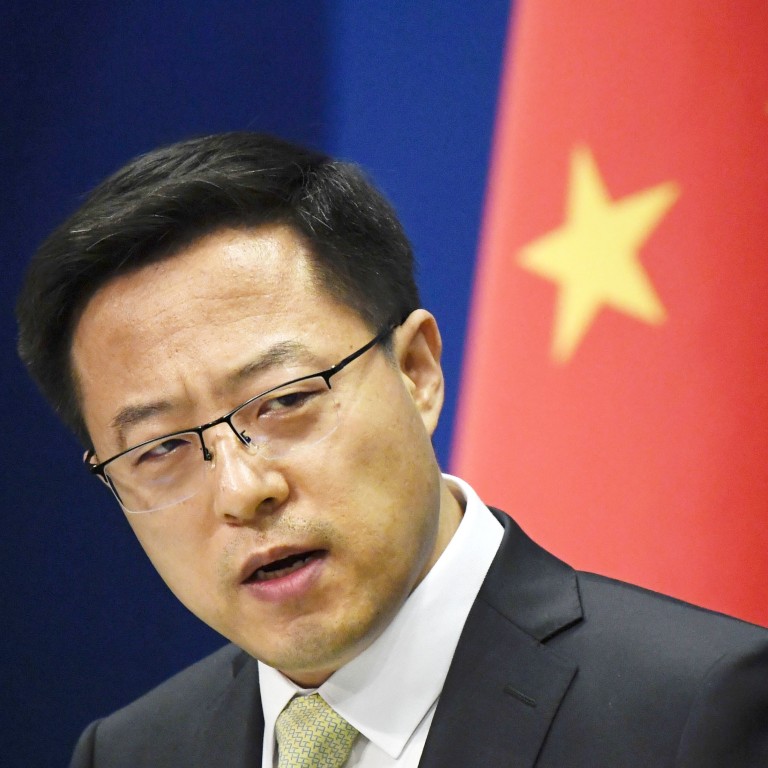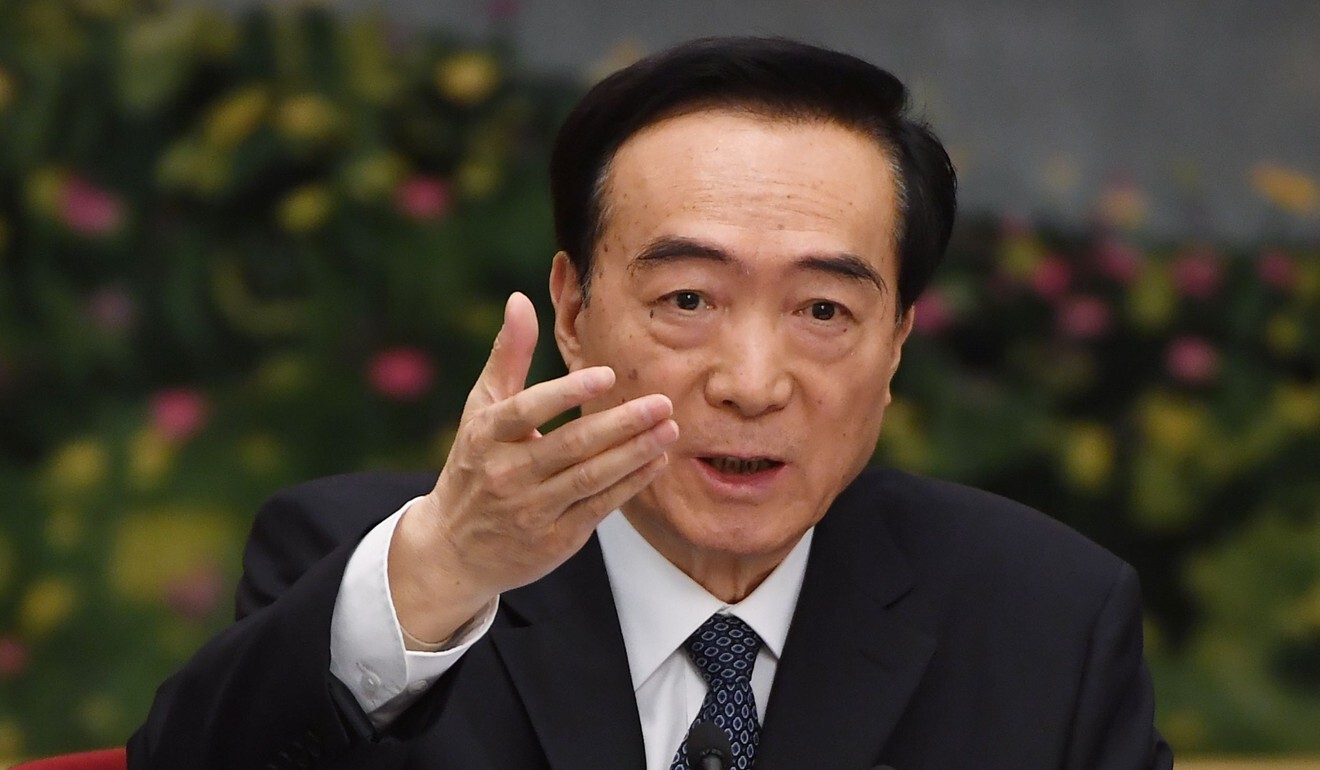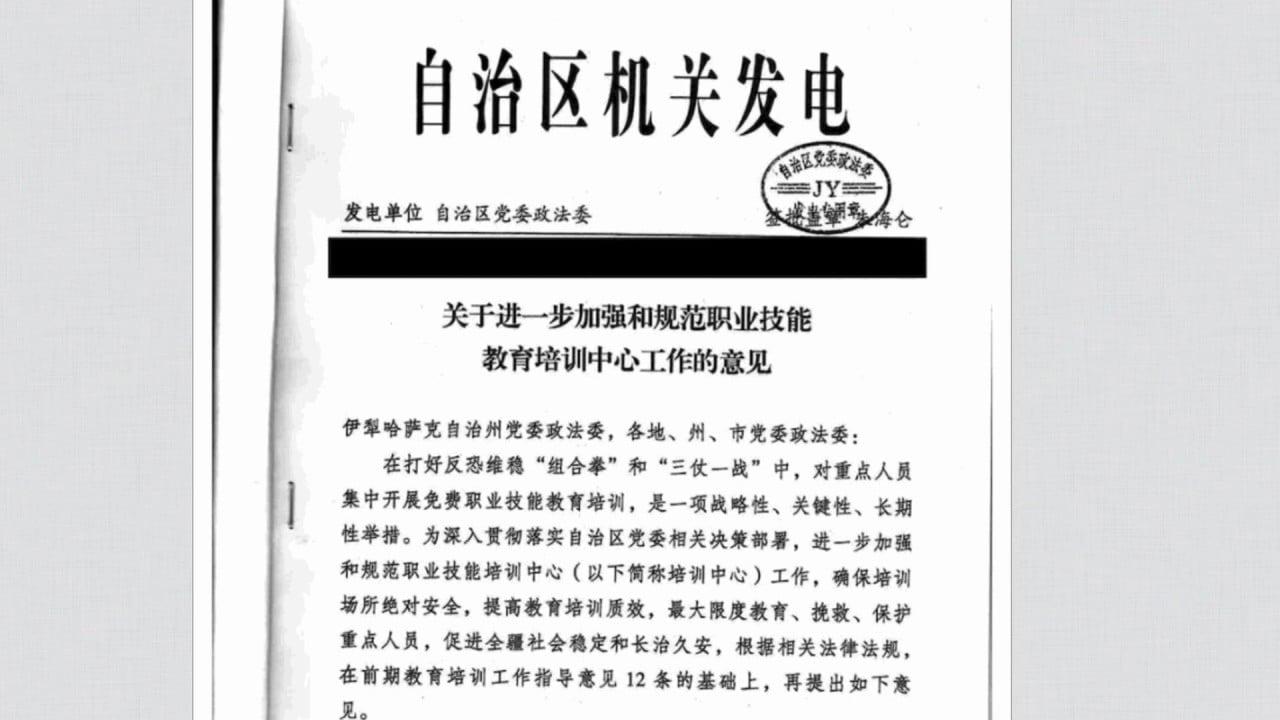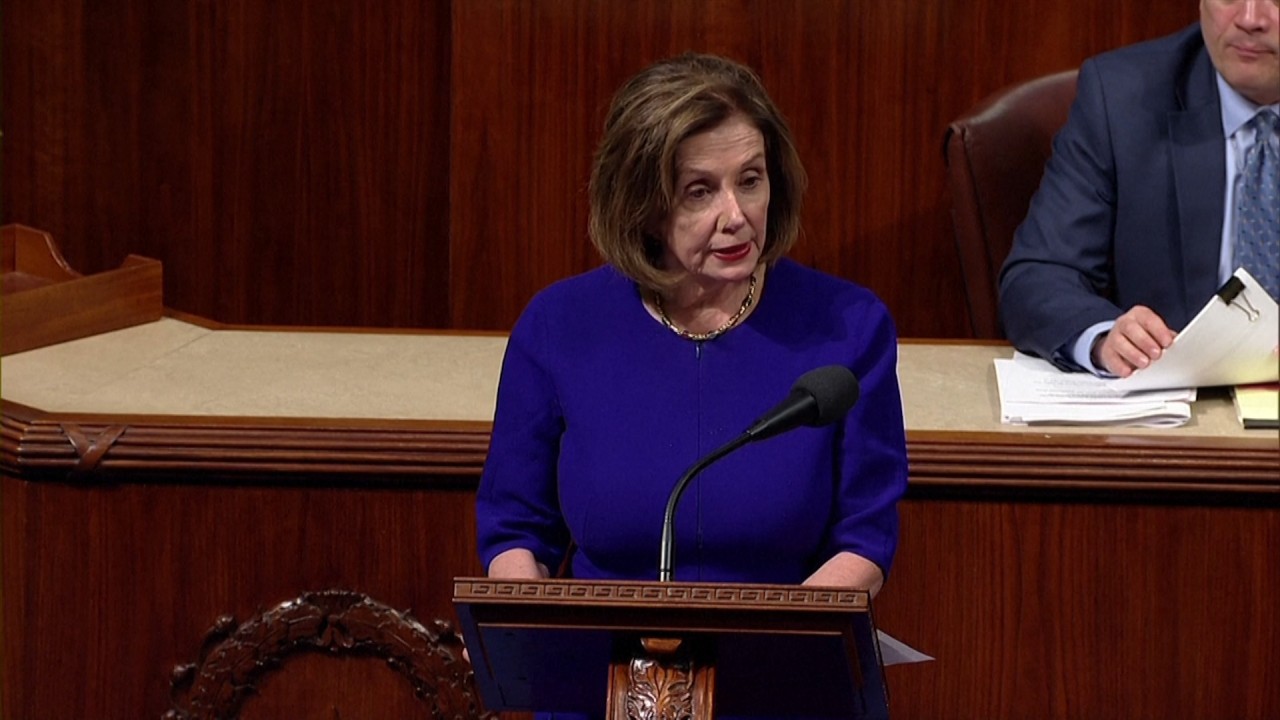
China vows ‘reciprocal action’ against critics of Xinjiang policies after US sanctions move
- Beijing says it will target ‘institutions and individuals who have acted egregiously on Xinjiang affairs’
- It was responding to Washington’s sanctions on Chinese officials it deems responsible for human rights abuses in the region
“In response to the wrongful move by the US, China has decided to take reciprocal action against institutions and individuals who have acted egregiously on Xinjiang affairs,” foreign ministry spokesman Zhao Lijian said on Friday.
Asked what those measures would be, Zhao said only that “the details will be out very soon”.
He also urged the US to withdraw its sanctions, and said China’s stance on sovereignty and counterterrorism issues was “unshakeable”.

US Secretary of State Mike Pompeo said the individuals and the police department were “believed to be responsible for, or complicit in, the unjust detention or abuse of Uygurs, ethnic Kazakhs and members of other minority groups in Xinjiang”.
He said the sanctions were in line with the Global Magnitsky Human Rights Accountability Act, under which the US can impose penalties on foreign officials for human rights abuses. The sanctions require all US assets of the targeted individuals or entities to be blocked and reported to the Office of Foreign Assets Control under the US Treasury Department.

03:47
Leaked state documents describe repressive operations at China’s detention camps in Xinjiang
Shi Yinhong, an international relations expert at Renmin University of China, said Beijing would be infuriated by the sanctions as it saw the Xinjiang issue as among its “core interests”.
“For the Communist Party, it is the most important issue … and Beijing has invested a great deal of resources to take very systematic and forceful measures [there],” he said.
Shi said China’s basic policy direction, including in Xinjiang, was unlikely to change despite pressure from the US.
“Of course these measures might be adjusted as Xinjiang becomes more stable, but the policies will remain on the same path,” he said.
Shi added that imposing sanctions against senior Chinese officials was the most direct punitive action Washington could take.

01:57
US House passes Uygur law demanding sanctions on China over human rights abuses in Xinjiang
The US Commerce Department in May slapped sanctions on seven Chinese companies and two institutions for being “complicit in human rights violations and abuses committed in China’s campaign of repression, mass arbitrary detention, forced labour and high-technology surveillance against Uygurs”.
In October, Pompeo announced visa restrictions on a group of unspecified Chinese officials deemed responsible for Beijing’s policies in Xinjiang.
“The law was passed 10 days ago and I think the US is still trying to punish China while taking its business interests in the city into consideration,” Shi said.
Mike Pompeo demands China end ‘Uygur sterilisations in Xinjiang’
Barry Sautman, an expert on China’s ethnic politics at the Hong Kong University of Science and Technology, agreed that US sanctions were not likely to change Beijing’s policies in Xinjiang.
“To the extent that the ‘education camps’ have been shuttered or been transformed into places of employment, the Chinese government will expect that to be eventually recognised, and pressure from abroad to ease,” he said.
Sautman was referring to Beijing’s claims in the past year that all “trainees” had been released from the centres and most had “found jobs”.
He added that future Xinjiang-related sanctions from the US would mostly depend on the US elections in November. “There is no ready-made constituency for sanctions related to Xinjiang in the US, in contrast to the constituency that has existed about Tibet,” he said. “It is thus possible that the sanctions we now have will be all that we will have in the near-to-medium term, unless events in Xinjiang force the issue.”
Chen, a Politburo member, is the highest ranking Chinese official to be sanctioned by the US government. US sanctions against Chinese officials are rare but not unprecedented. The only previous Chinese target of US sanctions under the Magnitsky act was Gao Yan in 2017, a former police chief in Beijing alleged to have been responsible for the death of human rights activist Cao Shunli in 2014.


